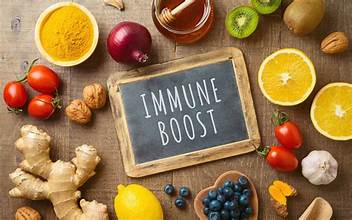Embark on a journey to explore the powerful connection between an active lifestyle and immunity. Discover how simple habits can significantly enhance your body's defenses and overall well-being.
In this guide, we delve into the pivotal role of exercise, nutrition, rest, and stress management in fortifying your immune system.
Benefits of an Active Lifestyle
Regular physical activity is essential for maintaining a healthy immune system. An active lifestyle can boost immunity by increasing the circulation of white blood cells, which are crucial for fighting off infections and illnesses. Exercise also helps reduce inflammation in the body, further supporting immune function.Specific Exercises to Enhance Immune System
- Cardiovascular exercises like running, swimming, or cycling can improve circulation and boost immune cell activity.
- Strength training exercises, such as weightlifting or bodyweight exercises, can help build muscle mass and support immune function.
- Yoga and stretching exercises can reduce stress levels, which can have a positive impact on the immune system.
Relationship Between Physical Activity and Immune Function
Regular physical activity has been shown to enhance the production of antibodies and improve the body's ability to fight off infections. Exercise also helps regulate the release of stress hormones, which can weaken the immune system if elevated for prolonged periods. Overall, staying active plays a crucial role in maintaining a strong and resilient immune system.Healthy Diet for Immunity
Eating a balanced diet plays a crucial role in supporting the immune system by providing essential nutrients that help fight off infections and keep our bodies healthy.Immune-Boosting Foods
- Fruits and Vegetables: Rich in vitamins, minerals, and antioxidants that help strengthen the immune system. Citrus fruits, berries, leafy greens, and bell peppers are excellent choices.
- Protein Sources: Lean meats, poultry, fish, eggs, nuts, and seeds are important for the production of antibodies that defend against infections.
- Whole Grains: Foods like brown rice, quinoa, and whole wheat bread provide fiber and nutrients that support overall health and immunity.
- Healthy Fats: Omega-3 fatty acids found in fish, flaxseeds, and walnuts have anti-inflammatory properties that boost immune function.
- Probiotics: Foods like yogurt, kefir, and fermented vegetables support gut health, which is linked to a strong immune system.
Role of a Balanced Diet
A balanced diet ensures that our bodies receive a variety of nutrients essential for optimal immune function. By incorporating a diverse range of foods from different food groups, we can maintain a strong immune system that is better equipped to fend off illnesses and infections.Importance of Sufficient Rest
Adequate rest and sleep are essential components in maintaining a strong immune system. When our bodies are at rest, they have the opportunity to repair and regenerate, which is crucial for supporting overall health and immunity.Tips for Incorporating Rest and Recovery
- Ensure you get 7-9 hours of quality sleep each night to allow your body to recharge.
- Practice relaxation techniques such as deep breathing, meditation, or yoga to reduce stress levels.
- Listen to your body and give yourself permission to rest when needed, especially after intense physical activity.
- Establish a bedtime routine to signal to your body that it's time to wind down and prepare for sleep.
Impact of Rest on Immunity vs. Physical Activity
While physical activity is crucial for maintaining a healthy immune system, the impact of rest should not be underestimated. Without sufficient rest, our bodies may not be able to recover properly from exercise, leading to increased inflammation and a weakened immune response. Balancing exercise with adequate rest is key to optimizing immune function and overall well-being.Stress Management Techniques
Stress can have a significant impact on the immune system, making individuals more susceptible to illnesses and diseases. It can weaken the body's defense mechanisms, making it harder to fight off infections. Therefore, it is crucial to manage stress effectively to maintain a strong immune system.Relationship between Stress, Physical Activity, and Immune Response
Physical activity plays a vital role in managing stress levels and boosting the immune response. Exercise releases endorphins, which are hormones that act as natural painkillers and mood elevators. These endorphins help reduce stress and anxiety, leading to a more balanced immune system.- Engage in regular exercise routines such as walking, jogging, yoga, or swimming to reduce stress levels.
- Practice mindfulness and meditation to calm the mind and decrease stress hormones in the body.
- Ensure adequate sleep to help the body recover from daily stressors and strengthen the immune system.
- Connect with friends and family for emotional support, which can help alleviate stress and improve overall well-being.
- Consider seeking professional help or therapy if stress becomes overwhelming and difficult to manage on your own.










